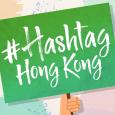簡介
Listen to #Hashtag Hong Kong every Sunday morning at 8.15
Focussing on issues affecting civil society, we'll hear from representatives of NGOs, associations, statutory bodies, and non-profit groups.
(Sundays 8.15am - 8.25am)
最新

Chris Leung, Social Worker, The Lok Sin Tong Benevolent Society
Hi everyone, I am Chris, the Deputy Centre-in-Charge of the Sham Shui PO Community Living Room of the Lok Sin Tong Benevolent Society, Kowloon.
According to the "Long-Term Housing Strategy - Annual Progress Report 2022," the government has secured sufficient land to build public housing units, fulfilling the supply targets for the next ten years. However, as the allocation of land for housing is not evenly distributed annually, only about one-third of these units will be completed in the first five-year period.
Hong Kong nowadays is facing a housing shortage, and many citizens would choose to live in subdivided flats. According to statistics released by the Census and Statistics Department in 2021, there are approximately 108,200 subdivided units for rent in Hong Kong, with an average of 3-4 partitioned rooms per unit. The median living space per person is only 56.5 sq. ft., lower than the 75 sq. ft. standard for public housing and the 161.5 sq. ft. for the average household in Hong Kong.
Apart from limited living spaces, subdivided units are also facing several problems like heavy water and electricity charges, safety issues, etc. The poor living environment has poses impacts on residents’ physical and mental health that most of them have to bear heavy financial burden and parenting.
In view of that, the Social Welfare Department (the "SWD") launched the "Community Living Room Pilot Scheme" funded by the Community Care Fund. The Sham Shui Po Community Living Room Project locates in Fuk Wa Street, Sham Shui Po, in where subdivided housing is concentrated. The Project focuses on supporting subdivided unit households, especially those with children, in order to alleviate the difficulties they face while waiting for public housing and living in poor conditions, and provide critical support during the transition period.
As a Government, Business, and Community tripartite collaboration project, the government has appointed THE LOK SIN TONG BENEVOLENT SOCIETY, KOWLOON, as the approved service organization to operate the Project, providing shared living spaces including pantry, dining room, living room, study and activity room, children's play facilities, fitness facilities, and self-service laundry facilities, as well as providing community information, health talks, After-school Learning and Support Programmes, community support and referral services. The Sham Shui Po Community Living Room has commenced operation since December 2023. It will operate for a period of three years. With the support of various sectors, the Project has already recruited over 500 families to provide them with services.
In this cross-sectoral collaboration project, not only could the users enjoy additional living space, but they could also broaden their social networks, thereby improving their quality of life and increasing their sense of community belonging. The after-school study support, provided by the Community Living Room, is aimed at alleviating pressure on parents to supervise their children’s homework. The project not only relieves the onus on parents as caretakers; it also lightens their housekeeping workload. Living in a relatively small and crowded flat, most of the users do not have space at home for a washing machine and need to wash clothes by hand. Now, however, they are able to make use of laundry services in the Community Living Room, which are available at an affordable price. User can build up their social network in the Community Living Room as well.
We will continue to actively expand the scope of services, and strive to help the sub-divided unit households in the Sham Shui Po district to improve their living space, sense of community belonging, and social networks after using the community living room facilities. In the long run, to elevate the living standards and enhance community belonging of grassroots citizens, we believe that with the participation of the business sector in setting up more Community Living Rooms in districts clustered with subdivided unit households, more grassroots families will benefit.
Three community living room projects in To Kwa Wan, Hung Hom and Nam Cheong are expected to commence operations gradually to provide support for subdivided unit households, particularly those with children. These four community living rooms are expected to serve 1,750 subdivided households, encompassing a population of around 270,000 individuals each year, to provide a better living standards for the residents.
And now I have a song I'd like to dedicate to all of you listening. My song is: "陪著你走” by Rubber Band
重溫
Innocent Mutanga, Founder and CEO of Africa Center Hong Kong
Good morning, my name is Innocent Mutanga, the Founder and CEO of Africa Center Hong Kong. Africa Center is a platform and creative hub that fosters value-creating interactions between African and non-African communities in Asia. Our mission is to bridge cultural differences and foster relations and cultural understanding between communities. We are a social enterprise dedicated to fulfilling the needs of our clients while promoting diversity and community representation.
Throughout our journey, we have collaborated with over 70 schools, reaching more than 50,000 students over the 5 years since our establishment. In addition to working with schools, we have formed partnerships with corporates, NGOs, consulates, and the general public.
One of the key goals at Africa Center is to challenge stereotypes and misconceptions surrounding black individuals in Asia. We call this campaign “Rebranding Blackness”. The struggles faced by black individuals living or visiting Asian countries are complex and multifaceted. We often encounter challenges such as stereotypes, discrimination, and a lack of representation. One of the most prevalent issues is the perpetuation of negative stereotypes about black people. Limited exposure and understanding have led some individuals to hold preconceived notions associating black individuals with criminality or low intelligence. These stereotypes result in biased treatment, social exclusion, and even harassment.
Discrimination against ethnic minorities in Hong Kong occurs in various forms, ranging from everyday microaggressions to more overt acts of racial prejudice. For instance, on my daily commute to the office, I often witness people choosing to stand rather than sit next to me on the MTR, even when there are empty seats available. This is just one example of the subtle forms of discrimination we experience. In more severe cases, ethnic minorities are denied housing opportunities solely based on their race. These microaggressions and racial prejudices not only have a socio-economic impact on our community but also take a significant toll on our mental well-being.
The employment prospects for qualified individuals from our community are hindered by anti-black biases in Hong Kong. Even highly talented individuals with advanced degrees may find themselves underemployed, working as dishwashers in restaurants due to these racial biases.
As a black person living in Hong Kong, my experience can be summed up in two words: caution and curiosity. We often encounter caution and fear from the older generations who unfortunately also hold the keys to our employment opportunities and access to grants and funding for starting businesses. On the other hand, we receive curiosity from the younger generation, who are more open-minded but vulnerable to influences from their parents and teachers. It is disheartening to discover that a significant number of students when asked if their parents warned them to be careful of black people before visiting our centre, raise their hands. Usually, 90% of kids raise their hands if we ask them if they have been verbally warned by their parents to be careful of us prior to the workshop. This demonstrates the extent of the misconceptions that persist in society.
However, there are heartwarming encounters that remind us of the potential for change. For example, a Chinese boy who attended our African Kidz club expressed his love for our food and suggested having a Fufu Festival in Hong Kong. Additionally, there was an instance where a child approached me on the MTR, and we started playing together, just like any other African child would. I was pleasantly surprised when the parent didn't intervene. Unfortunately, such situations are rare, and most parents tend to quickly remove their children from these interactions. These small enlightening moments give people like me the incentive to strive for change and challenge the negative perceptions of Africans and ethnic minorities. As Nelson Mandela once said, "No one is born hating another person because of the colour of his skin, or his background, or his religion. People must learn to hate, and if they can learn to hate, they can be taught to love, for love comes more naturally to the human heart than its opposite."
Despite Hong Kong's diversity, stereotypes, biases, and discrimination persist within society. As a political refugee who has experience navigating and overcoming complex systems, I am committed to assisting others; Refugees and non-refugees are alike who are faced with complex systems in their lives that make it hard or even impossible to survive, live or thrive
Education has the power to challenge prejudices, dismantle barriers, and promote inclusivity. By providing resources, mentorship, and support, we can empower marginalized communities and foster a more equitable society. Through awareness, dialogue, and collaboration, we can create a Hong Kong that embraces diversity and upholds justice and equality.
Our immediate goals are twofold. Firstly, we aim to connect with open-minded teachers, company leaders, and community figures who are willing to make a social impact by inviting us to their respective communities, schools, or churches. This will allow us to share our experiences and cultures, helping to create a more inclusive society for Africans and other ethnic minorities in Hong Kong. Secondly, we hope to obtain resources such as funding and skilled volunteers to support our initiatives directly benefiting the African and ethnic minority communities, including career workshops, networking opportunities, and entrepreneurship training.
In conclusion, it is crucial for the government and our community to take collective action to improve the care and support for ethnic minorities in Hong Kong. By fostering inclusivity, challenging stereotypes, and providing equal opportunities, we can create a society that values diversity and upholds the principles of equality and inclusion. Thank you for your time and for considering our message. We believe that together, we can make a difference and create a more inclusive and accepting Hong Kong. As a token of appreciation, we would like to dedicate a song to the people of Hong Kong. The song is called “Amani” by one of my favourite bands called Beyond. A song with Swahili lyrics (an East African Language) by a band that would go above and beyond to extend a hand to support other groups' struggles with their visits or music. I hope that this song resonates with you and encourages you to maintain Hong Kong’s “Beyond Spirit”!
Thank you!




















